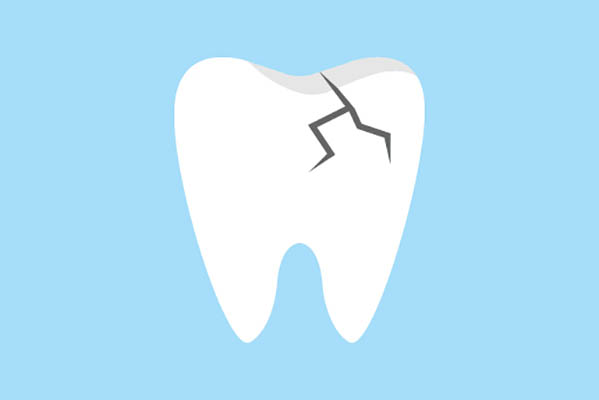General Dentistry – When Is a Dental Crown Recommended?

A dental crown is one of the most common types of treatment in general dentist. It is usually applied when a tooth has become damaged and requires extra support to maintain functionality. A dentist may recommend a crown if there is no other way to save the tooth. Before agreeing to the procedure, patients should ask the dentist why a crown is necessary and how the process works to gain a greater understanding of what is to come. Knowing some of the reasons for getting a crown, as well as what the procedure involves, goes a long way toward the patient feeling more at ease.
Reasons for a crown
A tooth may require a crown for a variety of reasons, all of which are dependent on the patient’s lifestyle, diets, oral hygiene habits, and injuries that have affected the mouth. Sometimes teeth can be fixed with smaller procedures, like a bonding or filling, but a crown comes into play when teeth are severely damaged from various causes.
Decay
If not cared for properly, teeth can easily start to decay from bacteria that naturally form in the mouth. Oftentimes, a patient’s diet includes too many sugars and carbohydrates that cause plaque to build around teeth, sealing in bacteria. Once the decay reaches the inside of the tooth, called the pulp, it can cause pain, and a root canal procedure is needed to remove the pulp and the top of the tooth. A crown is necessary to cap off the tooth afterward.
Wear
Teeth naturally wear down over time from chewing and grinding. Sometimes teeth can get chipped or cracked, or entire pieces can break off, weakening the structure and increasing the chance of complete tooth loss. A crown can reinforce the tooth by sealing the cracks and preventing further damage.
Dental procedures
Occasionally, other dental procedures require a crown to hold new appliances in place. Bridges, which are used to fill in the gaps of missing teeth, need crowns to adhere to the natural teeth on either side of the gap. A filling in general dentistry often involves filing down a section of tooth, and a crown can replace any height that was lost. Crowns are also used to top off dental implants.
Discoloration
Perhaps the simplest of reasons, a crown can be used to conceal oddly shaped or discolored teeth. The dentist can match the crown color or size to that of the patient’s other teeth, creating a whole, even smile.
The procedure
Expect two general dentistry visits to receive a permanent dental crown. The first visit includes examining the problem tooth, reshaping the tooth to make room for the crown, and taking an impression of the tooth. The impression is usually sent to a lab outside the dental office. Once the permanent crown is made, patients return for a second visit to receive it. A temporary crown is placed in between these visits. The time between the first and second visits is generally around two weeks.
What can a patient expect when the dentist fits the crown?
Once the permanent crown is ready and the patient goes in for their appointment, the dentist removes the temporary crown and ensures that everything went well for the patient during those two weeks. After placing the permanent crown over the tooth, the dentist will check to make sure the device fits well, looks nice, and is comfortable for the patient. It is at this time that the patient should tell their dentist if they are unsatisfied with the crown in any way; however, they should still let the dentist know if they have any concerns later on.
What does the healing process look like?
The healing process for a crown is typically pretty minimal, with just a few days of sensitivity and irritation after the procedure. If this discomfort does not go away after a few days or so, the patient may be advised to contact their medical professional.
Conclusion
Dental crowns can fix many problems, and although there are several good reasons to get a crown, they are not necessarily a patient’s only option. A dentist will recommend a crown if they feel it is the better option for the patient, but it is always a good idea for the patient to ask questions. Discussing treatment in detail with a dentist allows patients to choose what is right for them and their oral health.
Request an appointment here: https://www.myddsny.com or call Inna Goykman-Amir DDS at (718) 416-6364 for an appointment in our Brooklyn office.
Check out what others are saying about our dental services on Yelp: General Dentistry in Brooklyn, NY.
Related Posts
In general dentistry, fluoride treatments are common. Fluoride is a mineral found in bones and teeth, as well as water, plants, soil, rocks, and air. When used by dentists, fluoride strengthens tooth enamel. Therefore, dentists generally use fluoride as a preventative treatment against cavities. Additionally, fluoride can be found in most public water supplies. In…
Your experienced general dentist can repair your cavities. Assessing your teeth will come first. Then, the dentist will discuss the treatment options with you. Knowing which option can help you the most can prepare you for the visit. Here are the details about the different cavity treatments that your general dentist can discuss with you.The…
General dentistry offices are responsible for the primary dental care of people of all ages. Dentists perform routine care and maintenance to keep your smile healthy and beautiful. The visits also help dentists diagnose dental issues that may not have obvious symptoms yet. Many people wonder how often they should see their dentist. The answer…
A general dentist deals with the diagnosis, management, and treatment of oral health issues. Also, this type of dental professional provides routine care to help patients maintain good dental health. This routine care includes preventive treatments that help guard against the occurrence of cavities, injuries, and infections.Preventive treatments in general dentistry have immense benefits in…


